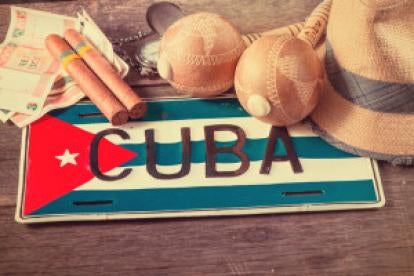The purpose of the Cuban Liberty and Democratic Solidarity Act (Libertad) Act (the “Helms-Burton Act” or the “Act”), passed in 1996, is to “protect United States nationals, i.e., U.S. citizens, against confiscatory takings and the wrongful trafficking in property confiscated by the Castro regime.”
Importantly, Title III of the Act provides a private cause of action for U.S. nationals against any person or entity that knowingly “traffics” in property expropriated by the Cuban government. The Act also provides exclusive jurisdiction for these claims in U.S. federal courts.
Every president since Bill Clinton has suspended Title III due to strong opposition from U.S. allies in Europe whose corporate citizens would likely be target defendants.
On April 17, 2019, U.S. Secretary of State Mike Pompeo announced the Trump administration will no longer suspend Title III: “Effective May 2nd, the right to bring an action under Title III of the Libertad Act will be implemented in full.” Secretary Pompeo went on to warn: “Those doing business in Cuba should fully investigate whether they are connected to property stolen in service of a failed communist experiment.”
Accordingly, it is of the utmost importance for U.S. and foreign companies, particularly those in the tourism, travel, transportation, telecom, mining, and manufacturing sectors, to examine their past and current dealings in Cuba. For some, it may result in the realization of a potential claim. For others, closer study may reveal potential exposure.
TITLE III BASICS
Title III creates civil liability for any individual or entity that traffics in property that was confiscated by the Cuban government on or after January 1, 1959. The Act authorizes claims by persons who were U.S. nationals at the time of expropriation and by persons who were Cuban nationals at the time but later became U.S. nationals. The State Department has estimated that the claims of these individuals could be worth billions of dollars.
Title III defines “trafficking” broadly by imposing liability on a person or entity that knowingly and intentionally sells, transfers, distributes, brokers, manages, or otherwise disposes of confiscated property, or that purchases, receives, holds, controls, manages, or holds an interest in confiscated property. Trafficking also includes engaging in a commercial activity using, or otherwise benefiting from, confiscated property.
The economic consequences following a determination of liability under the Act are significant. The award of damages could be based on the current market value of the property at issue rather than actual damages based on the trafficking conduct. Further, a successful Title III claimant is entitled to an award of attorneys’ fees and costs as well as treble damages if certain conditions are met.
CONCLUSION
Because Title III has yet to be litigated, there is virtually no precedent to provide potential parties with a predictable framework for liability under the Act. It is also difficult to predict whether the change in policy will result in an onslaught of litigation or whether most claimants will be dissuaded by personal jurisdiction issues or other obstacles, including how and where to enforce a potential judgment.
Regardless, it is likely any potential litigation will be initiated in federal court in the Southern District of Florida. Jones Walker’s Miami-based litigation team has decades of experience handling complex matters before federal courts that involve Latin America and the Caribbean and cases of national concern.






 i
i


